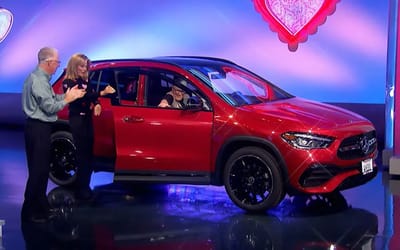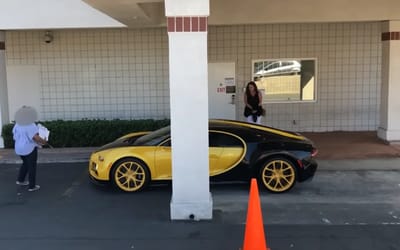Astronauts finally find missing tomato that was lost for 8 months in the ISS
- Astronauts have finally found a tomato that was lost on ISS eight months ago.
- Microgravity aboard the International Space Station (ISS) means items simply float away.
- Growing fruit and vegetables is said to be beneficial for astronauts mental, as well as physical, health
Published on Dec 11, 2023 at 9:49 PM (UTC+4)
by Amelia Jean Hershman-Jones
Last updated on Dec 20, 2023 at 2:18 PM (UTC+4)
Edited by
Amelia Jean Hershman-Jones
In an out-of-this-world example of a tomato rolling under the fridge, astronauts have finally recovered a tomato that had been lost on the ISS for eight months.
Thanks to microgravity aboard the International Space Station (ISS), it wasn’t as simple as merely following the logical path of the morsel according to gravity.
Microgravity, according to NASA, is “the condition in which people or objects appear to be weightless.
READ MORE! First ever luxury ‘Space Spa’ is literally like going to heaven
“The effects of microgravity can be seen when astronauts and objects float in space,” they said.
Think astronauts on tethers during ISS spacewalks to avoid them floating off into infinity – it’s the same phenomenon.
Or the Tesla that Elon Musk launched into orbit.
Or even the tool bag that is currently orbiting Earth at 17,000 mph.
While the tasty tomato couldn’t escape from inside the confines of the station, finding it was a mission in itself.

Just ask astronaut Frank Rubio, who lost the infamous tomato earlier this year
Francisco Carlos “Frank” Rubio is an American flight surgeon, US Army lieutenant colonel and helicopter pilot, as well as NASA astronaut.
He holds the American record for the longest spaceflight at 370 days – and so getting a snack in space is something he’s used to.
The tomato wasn’t just part of a salad, however, it was a vital part of the ongoing experiments into growing crops on the ISS.
Astronauts grew salad crops to experiment with types of fertilizer and levels of light that are best for growing produce in orbit.


Astronauts have also successfully cultivated chilies, kale, radishes, and more.
But all that research is hungry work.
When Rubio tried to enjoy the fruits of his labor, one dwarf tomato floated away before he could scarf it.
Per Space.com, Rubio discussed the lost tomato in a livestream following his return to Earth in September after he came back to earth.
“I spent so many hours looking for that thing,” Rubio said.

“I’m sure the desiccated tomato will show up at some point and vindicate me, years in the future.”
Now, after months of being MIA, the rogue produce has finally reappeared.
The news of its discovery was broken during a livestream to celebrate, not the tomato’s triumphant return, but the ISS’s 25th anniversary.
NASA astronaut, Jasmin Moghbeli, broke the good news.
“Our good friend Frank Rubio, who headed home [in September], has been blamed for quite a while for eating the tomato,” she said.
“But we can exonerate him. We found the tomato.”

While you might wonder what all the fuss over a salad item is about, you have to appreciate that, amid the powdered and prepackaged produce astronauts endure, fresh fruit and vegetables are highly prized.
And the toll space travel can take on the human body has been widely researched and documented.
Research has also revealed that, aside from the obvious benefits of nutrition to physical health, the proximity to nature is also beneficial for astronauts mental health and well-being.
DISCOVER SBX CARS: The global premium car auction platform powered by Supercar Blondie
With a dual English and French degree and NCTJ diploma, Amelia began her career doing award-winning writing and editing for titles and brands spanning Women's Health, the Telegraph, Boots, and Vitality. Amelia joined the SB Media family in September of 2023, bringing her expertise in SEO and reader takeaway. As Lead Editor, her superpower is translating technical jargon about the mechanical workings of a supercar into a shareable story.





